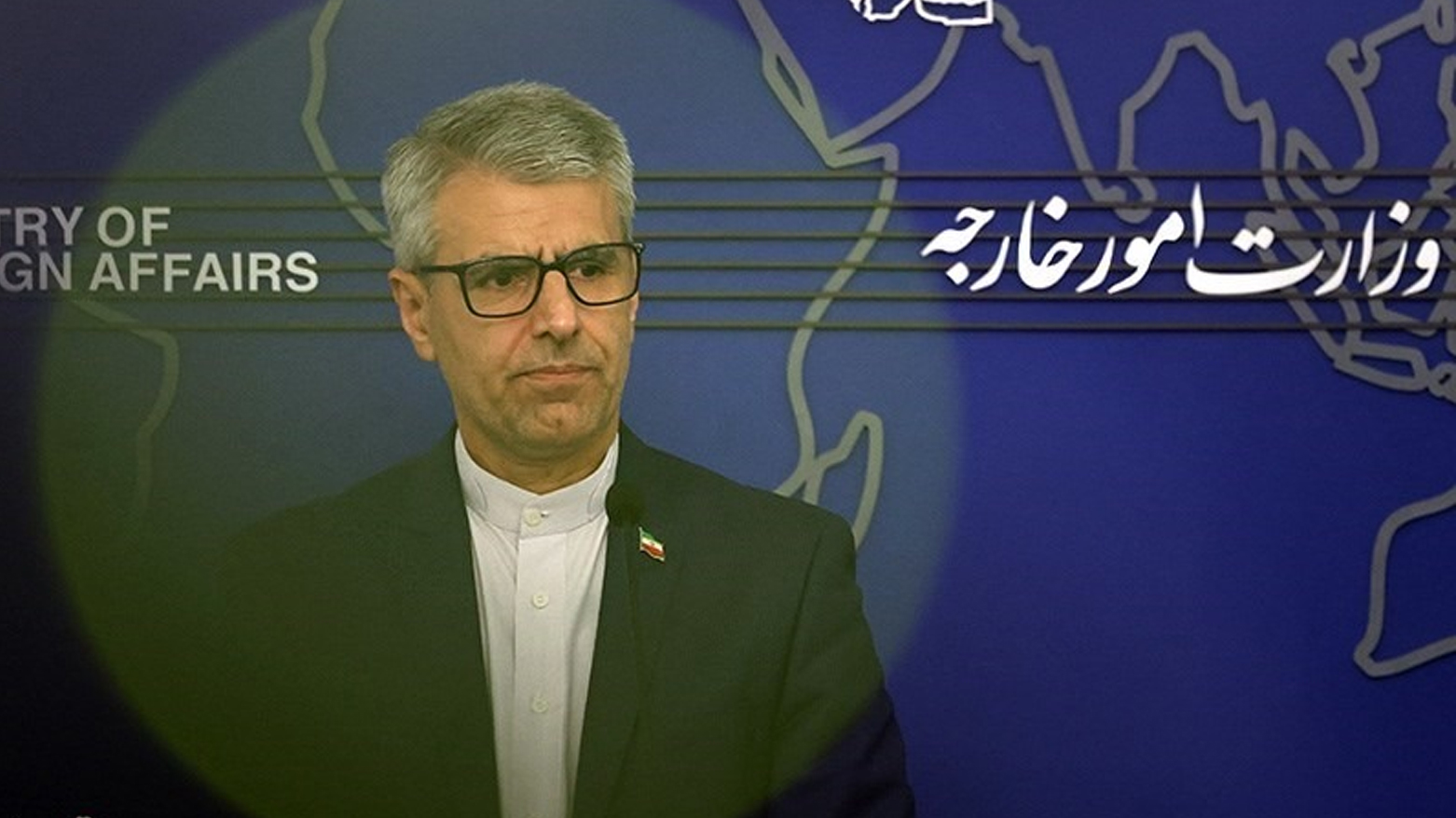Iran’s Domestic Uranium Enrichment, Sanctions Lifting 'Our Clear Red Lines,' Iranian FM Spokesperson
Iranian FM Spokesperson Baqaei also condemned what he described as the United States' "maximum pressure" policy, criticizing Washington's sanctions as violations of human rights and free trade.

By Kamaran Aziz
ERBIL (Kurdistan24) — As diplomatic efforts to salvage a nuclear agreement intensify, Iran reiterated its unwavering red lines on uranium enrichment and sanctions relief ahead of a crucial fourth round of indirect negotiations with the United States. The remarks were delivered by Esmaeil Baqaei, Spokesperson for Iran's Ministry of Foreign Affairs, during his weekly press briefing, as reported by Tasnim News Agency.
Baqaei underscored that Iran's fundamental principles must be respected if any agreement is to be reached. "Uranium enrichment within Iran and the effective lifting of sanctions are our clear red lines," he declared, warning that no detailed accord would materialize unless these conditions are honored.
The diplomatic landscape remains highly charged. Baqaei also confirmed that the fourth round of talks between Iranian Foreign Minister Abbas Araghchi and U.S. Special Representative Steve Witkoff is scheduled for Saturday, following the understanding reached in Muscat. According to The Washington Post, technical-level discussions have been initiated, marking a move towards more substantive negotiations.
However, the talks continue to face major obstacles, particularly disagreements over Iran's right to enrich uranium—a sticking point highlighted by The Wall Street Journal and Al-Monitor. The Wall Street Journal noted that while the discussions have been deemed "productive," serious divisions persist, especially concerning Tehran's insistence on maintaining domestic enrichment capabilities.
Despite the challenges, U.S. President Donald Trump struck a notably optimistic tone regarding the negotiations. Speaking to reporters, Trump emphasized the possibility of achieving a breakthrough without resorting to military force. "On the Iran situation, I think we are doing really well. I think the deal is gonna be made there. That's gonna happen. I am pretty sure it's gonna happen. We'll have something without having to start dropping bombs all over the place," he stated, underlining his administration's preference for diplomacy over conflict.
Addressing the broader context, Baqaei expressed hope that European nations would play a constructive role in supporting negotiations, even as three European countries opted out of the latest process—a decision Baqaei said was their own.
The negotiations are unfolding amid heightened tensions. As reported by Al-Monitor, Iranian officials continue to insist on their right to peaceful nuclear development, despite growing external pressure. Simultaneously, a deadly explosion at Shahid Rajaee Port in Iran's Hormozgan Province, coinciding with the launch of technical talks, added further complexity to the situation.
Meanwhile, The Washington Post observed that Iranian media, even those aligned with hardline factions, have generally portrayed the negotiations positively, suggesting a growing consensus among the Iranian elite that securing sanctions relief is crucial to avoiding economic collapse.
Regarding the International Atomic Energy Agency (IAEA), Baqaei emphasized that the current technical delegation’s discussions are confined to outstanding safeguards issues, reiterating the peaceful nature of Iran’s nuclear activities.
Baqaei also condemned what he described as the United States' "maximum pressure" policy, criticizing Washington's sanctions as violations of human rights and free trade. According to The New York Times, sanctions have exacerbated economic challenges in Iran, creating a strong incentive for Tehran to reach a deal.
In addition to nuclear issues, Baqaei reaffirmed Iran's commitment to defending its citizens abroad, including the cases of Iranian detainees in France, and announced that Deputy Minister Araqchi would lead Iran's delegation at the BRICS Foreign Ministers' meeting in Brazil.
Importantly, Baqaei reiterated that Iran's nuclear program is essential for the country's energy future, despite its substantial oil and gas reserves, and welcomed international cooperation.
With Iran's Foreign Minister preparing for further technical negotiations alongside economic and nuclear experts, Baqaei stressed that lifting sanctions remains Tehran’s core demand. "Iran is serious about negotiations and aims to lift oppressive sanctions as soon as possible," he said.
As reported by Tasnim News Agency and corroborated by The New York Times, while cautious optimism persists, the path to a final agreement remains fraught with challenges. Both sides remain entrenched on critical issues, particularly uranium enrichment and verification mechanisms. The upcoming round of talks will serve as a key indicator of whether a historic breakthrough is within reach or if the region is poised for renewed escalation.